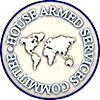


|
| For
Immediate Release: February 4, 2004 |
Contact: |
Harald Stavenas |
OPENING
REMARKS OF CHAIRMAN DUNCAN HUNTER
Posture Hearing on Department of Defense FY
2005 Budget Request
This afternoon the Committee meets to receive testimony on the Department of Defense Fiscal Year 2005 budget request.
Someone once compared transforming the military in the middle of a war to changing the tires on a moving school bus. Fundamental reform is very tough for any organization, but for the Department of Defense, the stakes are even higher as lives depend on getting it right and not increasing the risk to the nation in the process.
For these reasons, Mr. Secretary, I agree with those that believe you have the toughest job in Washington. I also happen to believe that we are very fortunate to have someone with your drive, determination and intellect to carry this difficult task forward. Difficult or not, we are a democracy at war and the job still has to be done.
Many elements of this budget reflect that fact. It represents a roughly seven percent increase over last year's request. That's real growth, and it has been a long time coming. The request meets many of our immediate needs, funds long-term, transformational systems, and continues to improve our soldiers' quality of life. Overall, this budget takes us in the right direction.
That said, as a country we need to ask ourselves if we are truly mobilizing for the long term conflict that the President has warned us the global war on terror will be. As a percent of gross domestic product or as a percent of total federal outlays, defense spending is still far below where it was during Vietnam, or even the Reagan buildup that helped win the Cold War. While those periods in our history shouldn't arbitrarily determine current defense expenditures, they should remind us that significantly higher levels of national security spending are within our experience, and our means.
There are a variety of proposals floating around Washington to increase the size of our military. It's no secret that I personally think the force structure cuts of the 1990s went too far. Short-term thinking about both the security environment and the federal budget drove many of those cuts when we should have been thinking much longer term.
To its credit, this Administration has done a lot of long-term thinking when it comes to the kind of forces we will need in the future. This budget request reflects that thinking and is a significant step in improving our future security.
But the simple fact is that we don't know when the global war on terror will end. It's true that we can't solve today's strains on the military by an immediate increase in the size of the military. But, given the length of time it takes to create new military units, we need to start today if there's a possibility that transformation and management reform won't fully address the problems we may face tomorrow.
As you are so fond of reminding us, Mr. Secretary, the future is largely unknowable. Unknown unknowns mean risk. While such unknowns are unavoidable, a larger force - transformed or not - will go a long way in reducing the risks they pose.
This is an important debate that will not be settled today, but I look forward to hearing your latest assessment on how the Department is preparing for this uncertain future and to continuing this dialogue in the months ahead.
###
2120 Rayburn House Office Building
Washington, D.C. 20515
|
NEWSLETTER
|
| Join the GlobalSecurity.org mailing list |
|
|
|

